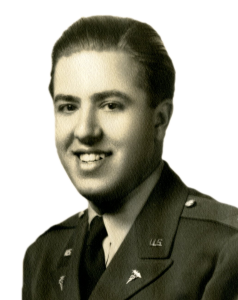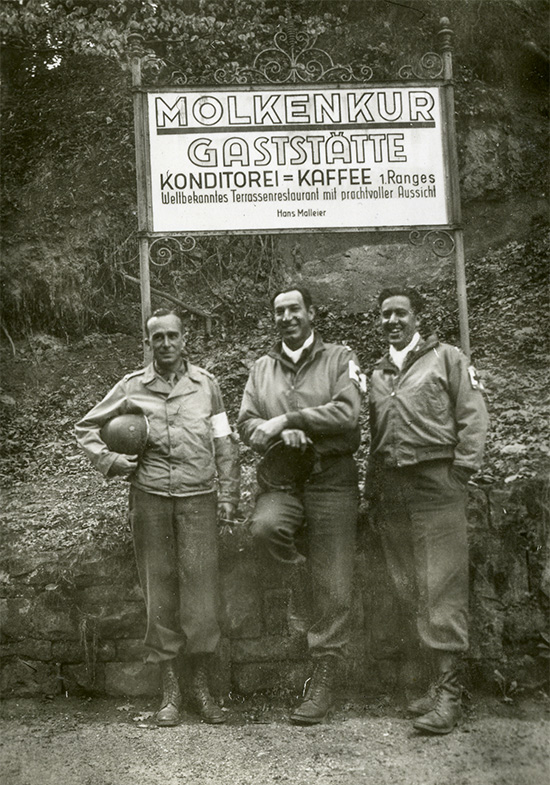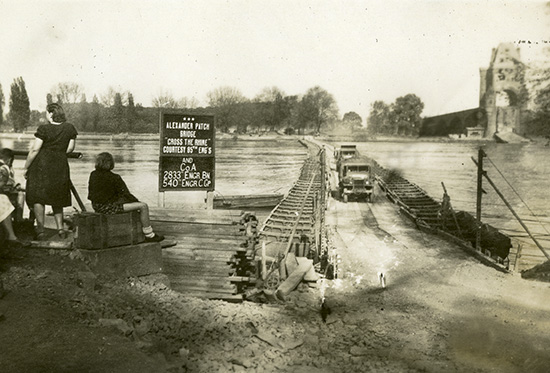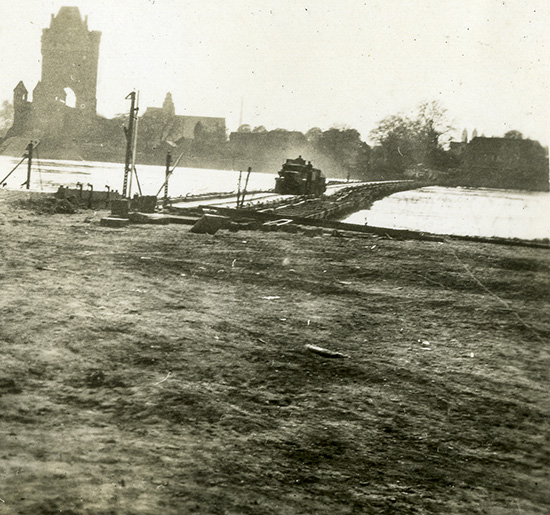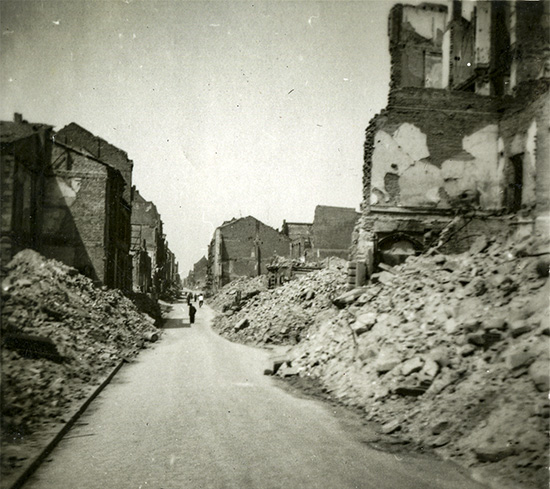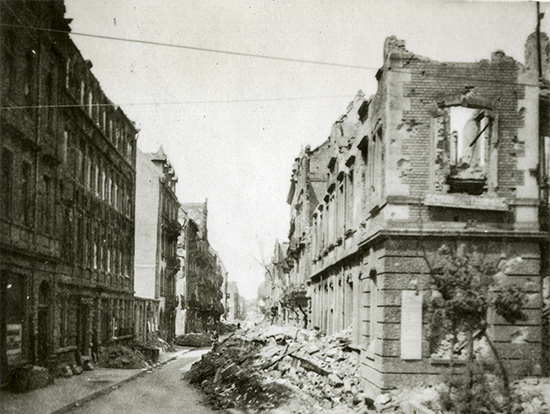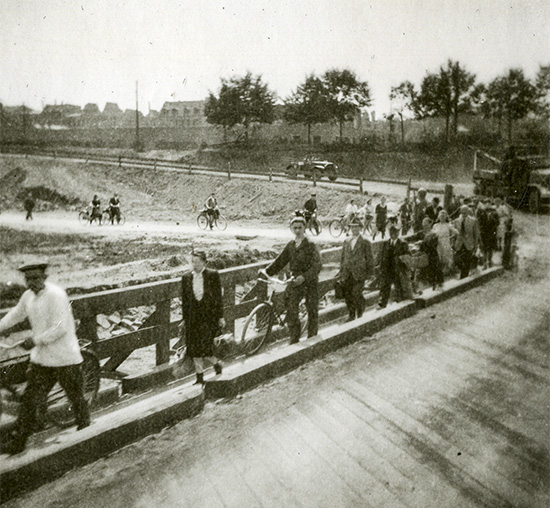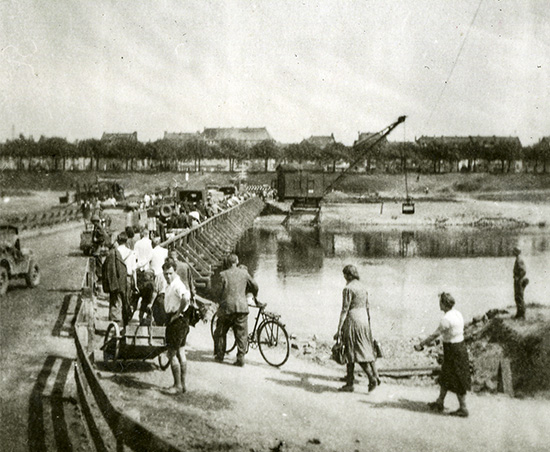April 19, 1945
April 19, 1945
Tiefenthal, Germany
No. 31
Dear Folksies,
The evening of the day that Mattie and Phil returned, Wally got up enough nerve to ask the Col. if, since the “Gang-Greene” was off duty the next day, it would be possible to visit Heidelberg. To Wally’s surprise the Old Man agreed that it would be a good idea and offered the command car as transportation for us, suggesting that we start out early and come back when we had seen all we wanted to see there.
The next A.M. we sort of got off to a false start for, on the way we were supposed to deliver a supposedly important message to an outfit that, according to Dunlap, was located in the little town past another town on our way. When we got to that spot and found that Dunlap had erred seriously, for the town we were supposed to go to was actually a long distance in the opposite direction from the one we were going. As the message was presumably of import we went clear on back to camp and dumped the message back in Dunlap’s lap, taking off once again about an hour and a half later than our 1st start.
Besides the “Gang-Greene” (Carroll, Wally and myself), we took with us Lou Huff and Bill Newsom, “Dutch” Boven driving. We couldn’t have picked a better day for the trip. The sun was shining brightly all day long and tho’ ‘twas breezy in the back of the command car, as it was wide open, the whole ride was most comfortable and we had a marvelous time. The scenery was really beautiful, what with the low hills, the rolling farm-land, the fields partly plowed, and the tremendous amount of equipment moving up the highways to the front.
One funny scene we noted on the way was an abandoned German anti-aircraft searchlight, which was being utilized by a small group of German kids as a merry-go-round. They had the light pointed toward the sky and were going round and round with it having a great time, sitting on the edges of the light.
The Rhine was just as expected, wide and with every formerly permanent bridge just a mess, having been blown, of course, by the Krauts themselves. Our engineers certainly did a wonderful job of throwing make-shift bridges across that river. It was interesting to watch the heavy trucks crossing the pontoon bridges and to see how the bridge sagged in sections into the water as the trucks made progress across them.
Mannheim was quite a revelation for us. What a mess! Our bombers certainly did a fine job there. Oh yes, there were shells of buildings still standing, but when one looked closely one noticed that that was all that was left, there just wasn’t any inside to those buildings. Westdahl had told us, too, how, when flying over Mannheim and a couple of other places, one could get a better idea of the destruction because one could see right down to the basement of these buildings from the air — there being just no insides at all.
There were a lot of scrawled signs on the building walls throughout the city, signs that had been put there before our advancing troops got anywhere near, and then there were some proclaiming that Mannheim would be rebuilt once again — all those in German, of course. And then there were the ones obviously chalked on the walls by some G.I.s and most appropriate too, stating, “Vorn Mannheim,” or “Formerly Mannheim.” That really hit the nail on the head. We passed what used to be the Opera House, some of the large hotels, the City Hall — all were a mess. The circular and sunken gardens in the center of the city, by the Opera House, had been cleared of its rubble and looked as if once had been a mighty pretty spot, but no longer…..
Loads of love,
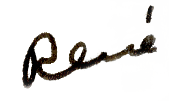
.

